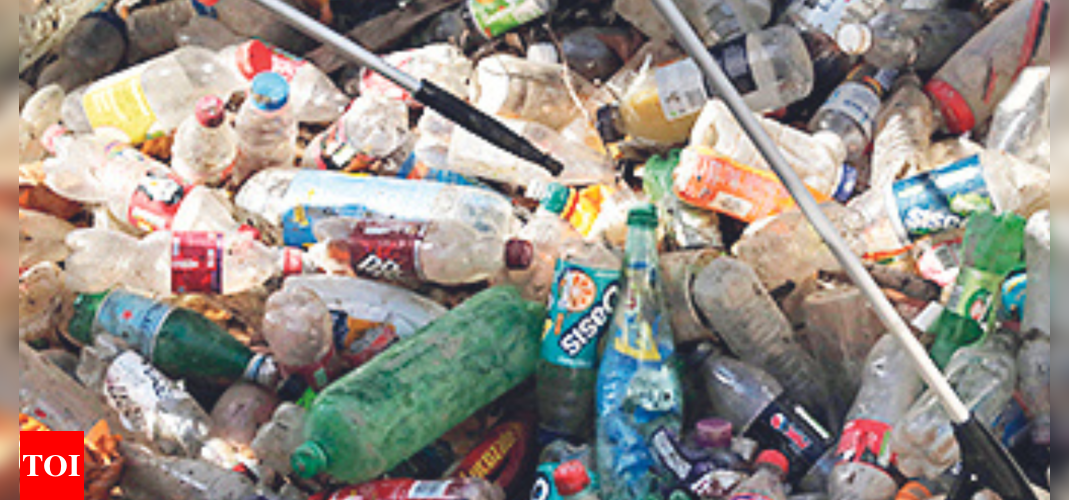PANAJI: The world’s first chatbot allowing citizens to report plastic dumps in public places is set to be tested in Goa by the World Wildlife Fund (WWF) – India. It will be launched on Thursday and citizens can use WhatsApp to connect with the chatbot. It will ask several questions to understand the type and quantity of plastic dumped. Location and photographs of the dump can also be shared.
Data collected through the chatbot will then be analysed by WWF-India to draw up a strategy to clear the blackspots, with primary focus on dumps located in marine environments.
After its trial period, WWF-India has plans to introduce the chatbot in other parts of the country as well.
Tourism activities in Goa and southern Maharashtra generate large quantities of plastic waste in the marine environment. These regions, known for their pristine natural beauty, are faced with the challenge of protecting endangered marine species and vital habitats, such as coral reefs, from plastic waste.
To address this problem, WWF-India had the chatbot developed by Parmanoo Data Labs. The project was funded by a financial services company as a CSR initiative,” senior coordinator of marine biodiversity conservation at WWF-India’s Goa office, Aditya Kakodkar, said. To report plastic dumps in Goa from Thursday, citizens have to simply type ‘plastic’ and send it to WWF’s WhatsApp number, 7498982409.
The chatbot will guide participants through predefined questions to gather the necessary details. “There are apps to tackle similar problems, but the chatbot saves citizens the effort of downloading an app, which may take up space on their phones.
The chatbot simply employs a messaging service that is widely used. Once the information is collected through the chatbot, we will analyse it and pursue a strategy to tackle the blackspots together with panchayats and manufacturers of products in disposable plastics,” said Kakodkar. He also said the data will help map the extent of unmanaged plastic waste in natural habitats and aid in identifying effective solutions.
“The growth of nature tourism, including coral reef scuba diving and dolphin watching, has brought increased plastic pollution to these fragile ecosystems. WWF-India is already working with dive and dolphin tour operators to implement effective plastic waste management strategies. Recognising the need for intervention, the chatbot was also launched. It allows the citizen to report multiple dumps within minutes,” he added.
Data collected through the chatbot will then be analysed by WWF-India to draw up a strategy to clear the blackspots, with primary focus on dumps located in marine environments.
After its trial period, WWF-India has plans to introduce the chatbot in other parts of the country as well.
Tourism activities in Goa and southern Maharashtra generate large quantities of plastic waste in the marine environment. These regions, known for their pristine natural beauty, are faced with the challenge of protecting endangered marine species and vital habitats, such as coral reefs, from plastic waste.
To address this problem, WWF-India had the chatbot developed by Parmanoo Data Labs. The project was funded by a financial services company as a CSR initiative,” senior coordinator of marine biodiversity conservation at WWF-India’s Goa office, Aditya Kakodkar, said. To report plastic dumps in Goa from Thursday, citizens have to simply type ‘plastic’ and send it to WWF’s WhatsApp number, 7498982409.
The chatbot will guide participants through predefined questions to gather the necessary details. “There are apps to tackle similar problems, but the chatbot saves citizens the effort of downloading an app, which may take up space on their phones.
The chatbot simply employs a messaging service that is widely used. Once the information is collected through the chatbot, we will analyse it and pursue a strategy to tackle the blackspots together with panchayats and manufacturers of products in disposable plastics,” said Kakodkar. He also said the data will help map the extent of unmanaged plastic waste in natural habitats and aid in identifying effective solutions.
“The growth of nature tourism, including coral reef scuba diving and dolphin watching, has brought increased plastic pollution to these fragile ecosystems. WWF-India is already working with dive and dolphin tour operators to implement effective plastic waste management strategies. Recognising the need for intervention, the chatbot was also launched. It allows the citizen to report multiple dumps within minutes,” he added.



